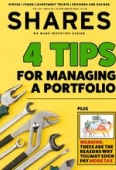Archived article
Please note that tax, investment, pension and ISA rules can change and the information and any views contained in this article may now be inaccurate.
Diageo and Richemont disappoint investors as luxury sales growth slowdown continues

Global spirits leader Diageo’s (DGE) shares plunged last week after the Johnnie Walker whisky maker warned on first half profits amid worsening sales in the Latin American and Caribbean region, where macroeconomic pressures have resulted in lower consumption and ‘consumer downtrading’.
Diageo’s shock earnings alert, combined with the slower growth now being experienced by other high-end product purveyors, shows luxury goods companies aren’t immune to economic downturns after all and central bank rate hikes are finally curtailing the spending of even their well-heeled consumers.
Guinness, Captain Morgan and Casamigos-maker Diageo pinned the blame on materially weaker performance in Latin America and the Caribbean, while the slower-than-expected post-Covid recovery in China has hardly helped.
On the same day, posh watch and jewellery retailer Richemont (CFR:SWX) posted disappointing first-half profits due to a weaker economic climate and geopolitical tensions. The Cartier, Montblanc and Van Cleef & Arpels brand owner’s sales rose 6% to €10.2 billion in the half ended 30 September 2023, below the €10.34 billion analysts had predicted.
Richemont chairman Johann Rupert said second-quarter growth had eased as ‘inflationary pressure, slowing economic growth and geopolitical tensions began to affect customer sentiment, compounded by strong comparatives. Consequently, we have seen a broad-based normalisation of market growth expectations across the industry.’
The idea that luxury goods companies are immune to economic downturns is slowly beginning to unravel, with the likes of LVMH (MC:EPA), beauty and cosmetics colossus Estee Lauder (EL:NYSE), Ralph Lauren (RL:NYSE) and Watches of Switzerland (WOSG) all talking about a mid-year slowdown in growth.
Now added to that list is Tapestry (TPR:NYSE), the Coach-to-Kate Spade owner which agreed to buy Michael Kors owner Capri (CPRI:NYSE) in August. On 9 November, Tapestry trimmed its 2024 sales forecast, citing currency headwinds and ‘a more moderate operational outlook for Asia and North America’.
Yet it is a nuanced picture - recently, luxury lifestyle product purveyor Ralph Lauren confounded gloomy expectations by posting forecast-beating second-quarter sales thanks to a recovery in its China business and more affluent US customers buying its upmarket jumpers, Polo shirts and handbags ahead of Christmas, although the company was increasingly cautious about wholesale demand.
Also showing resilience of late is luxury watch retailer Watches of Switzerland, whose shares rallied last week after the company revealed an ambitious plan to more than double sales and profits by 2028. Watches of Switzerland reported improved second quarter trading, including an 11% sales uptick in the US, and reiterated its full year 2024 guidance. Nevertheless, the shares are down 40% over one year on growth concerns and fears key supplier Rolex may move to a direct sales channel following its takeover of retailer Bucherer.
Important information:
These articles are provided by Shares magazine which is published by AJ Bell Media, a part of AJ Bell. Shares is not written by AJ Bell.
Shares is provided for your general information and use and is not a personal recommendation to invest. It is not intended to be relied upon by you in making or not making any investment decisions. The investments referred to in these articles will not be suitable for all investors. If in doubt please seek appropriate independent financial advice.
Investors acting on the information in these articles do so at their own risk and AJ Bell Media and its staff do not accept liability for losses suffered by investors as a result of their investment decisions.
Issue contents
Feature
Great Ideas
Investment Trusts
News
- Diageo and Richemont disappoint investors as luxury sales growth slowdown continues
- Arm’s shares have given up all the gains made immediately after its IPO
- $31 billion marketing tech group Trade Desk slumps on Q4 guidance
- Pearson shares on a roll after profit guidance upgrade and hiring a new CEO
- Why UK shares are vulnerable to further takeovers in 2024

 magazine
magazine








